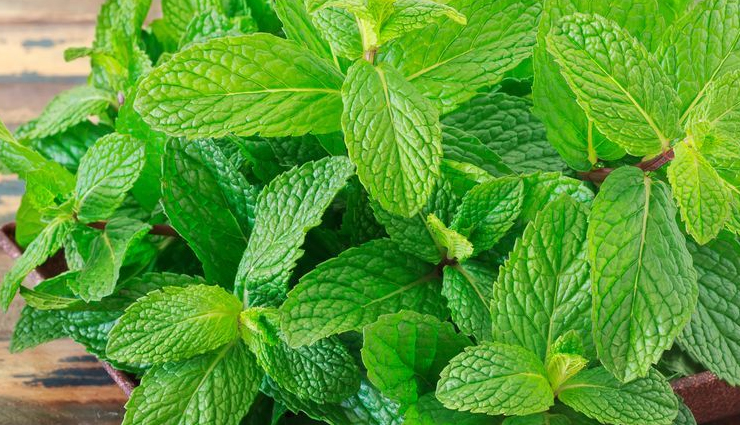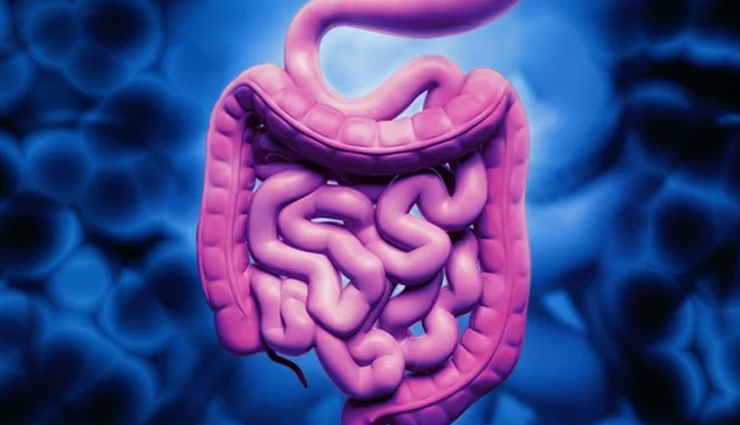- Home›
- Healthy Living›
- 11 Proven Health Benefits Of Mint Leaves
11 Proven Health Benefits Of Mint Leaves
By: Priyanka Maheshwari Wed, 05 June 2024 11:02:38

Mint leaves, belonging to the Lamiaceae family, are renowned for their refreshing flavor, vibrant aroma, and versatile culinary and medicinal uses. The genus Mentha encompasses numerous species, including peppermint (Mentha piperita) and spearmint (Mentha spicata), which are among the most commonly used varieties. Native to temperate regions, mint plants are characterized by their square stems, aromatic leaves, and rapid growth, often spreading vigorously in gardens and wild settings.
Throughout history, mint has been treasured for its culinary applications, from enhancing the flavors of dishes and beverages to serving as a natural garnish. In addition to its gastronomic appeal, mint has a rich legacy in traditional medicine. Ancient civilizations, including the Egyptians, Greeks, and Romans, utilized mint for its therapeutic properties, particularly for digestive and respiratory ailments.
Modern research supports many of these traditional uses, highlighting the health benefits of mint leaves, such as aiding digestion, alleviating symptoms of irritable bowel syndrome (IBS), providing respiratory relief, and offering antimicrobial and anti-inflammatory effects. The essential oils extracted from mint, particularly menthol, are widely used in pharmaceuticals, cosmetics, and aromatherapy, further underscoring the plant's significance.

# Digestive Health: Mint leaves can aid digestion and help relieve indigestion and stomach discomfort. The menthol in mint can relax the muscles of the digestive tract, improving the flow of bile and promoting better digestion.

# Relief from Irritable Bowel Syndrome (IBS): Peppermint oil, derived from mint leaves, is known to be an effective treatment for the symptoms of IBS, including pain, bloating, and irregular bowel movements. Its antispasmodic properties help relax the muscles in the gastrointestinal tract.

# Respiratory Benefits: The menthol in mint can help clear congestion, making it easier to breathe. Mint is often used in remedies for colds, bronchitis, and other respiratory issues.

# Oral Health: Mint has antimicrobial properties that can help freshen breath and maintain oral hygiene. Chewing mint leaves or using mint-based toothpaste and mouthwash can reduce bad breath and protect against harmful bacteria.

# Nausea Relief: The aroma of mint can help alleviate nausea and headaches. Inhaling the scent of mint or consuming mint tea can be particularly effective.

# Skin Health: Mint has anti-inflammatory and antibacterial properties that can help treat skin conditions such as acne. Applying mint juice or mint-based products to the skin can reduce inflammation and prevent bacterial growth.

# Mental Health: The refreshing aroma of mint can help reduce stress and improve cognitive function. Inhaling mint essential oil or drinking mint tea can have calming effects and enhance mental alertness.

# Allergy Relief: Mint contains rosmarinic acid, which has anti-inflammatory and antioxidant effects. This compound can help alleviate symptoms of seasonal allergies and hay fever.

# Weight Management: Mint can help in weight management by stimulating digestive enzymes that help absorb nutrients from food and convert fat into usable energy.

# Anti-inflammatory Properties: The rosmarinic acid in mint also helps reduce inflammation throughout the body, which can be beneficial for conditions like arthritis.

# Pain Relief: Mint has been used traditionally to relieve pain and muscle soreness. Applying mint oil to the skin can help soothe pain and reduce muscle tension.





